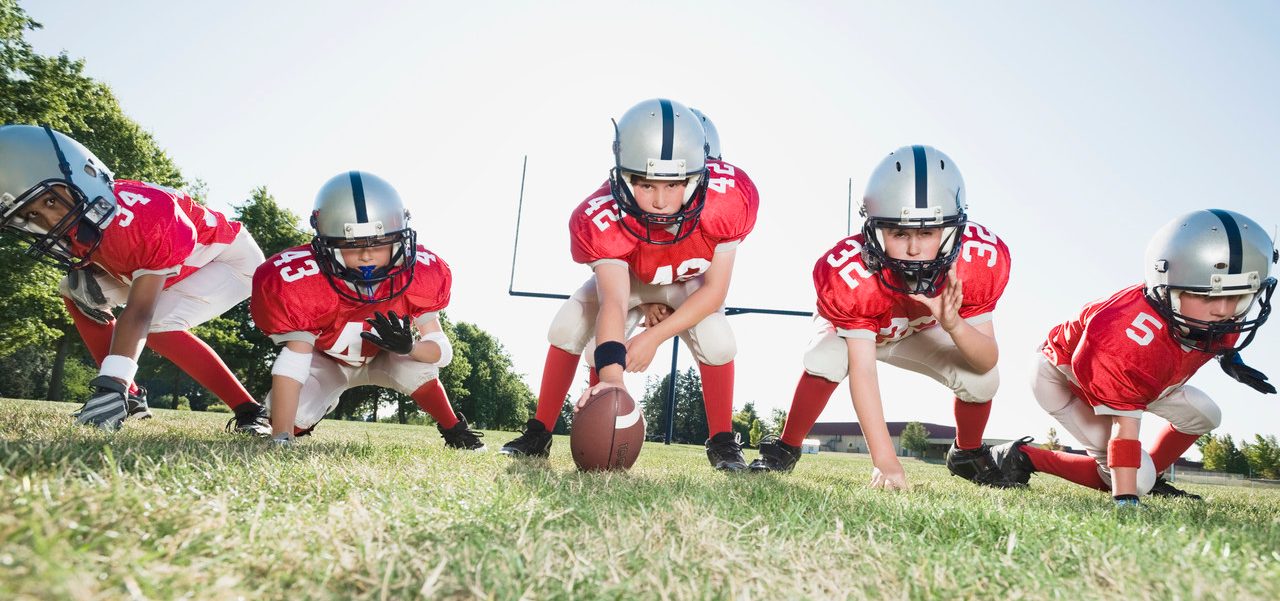How to Protect Your Child Against Concussion

Rates are rising in younger athletes.
As a young man Robert Cantu, MD, played baseball for a college team. While at bat, a pitch that came in high and tight cracked the useless cap liner players wore in the “dark ages.”
Bleeding from the scalp, Cantu was taken to the hospital, his coaches mortified that he might have a skull fracture. He didn’t, but in retrospect he knows he did have a concussion based on his serious symptoms.
“In those days, it wouldn’t have occurred to anyone in either dugout that I might have had a concussion,” he writes in “Concussions and Our Kids,” a manifesto on an epidemic by a now eminent expert.
YOU MIGHT ALSO LIKE: Preventing Kid Sports Injuries
Concussions happen often in the young
For young people ages 15 to 24, sports are the second leading cause of traumatic brain injury after car crashes, he notes. If you’re a parent, other statistics that will alarm you include the fact that 40 percent of emergency department visits for sports-related concussions in young athletes occur in children ages eight to 13.
Four hundred thousand concussions occurred in high school athletes during the 2008-09 school year. Injuries associated with participation in sports and recreational activities account for 21 percent of all traumatic brain injuries among U.S. children. Girls are more susceptible to concussions than boys. In soccer, the rate of concussions among girls was found to be 68 percent higher in one study. The statistics go on and on.
Long referred to as simply “getting your bell rung” or “seeing stars,” concussion is no longer a sign of toughness if you get up and brush it off. That’s important to realize because experts say it’s the way we perceive concussion, even now, that has led to an increase among kids.
Evidence compiled since Cantu’s dark ages is conclusive that a concussion can change the structure of the brain. Not every time; in fact most kids recover just fine after the appropriate amount of rest. Subsequent concussions, however, can increase risk of future neurological problems.
How to protect your child from concussion
One of our most illustrious Founding Fathers, Benjamin Franklin, had no idea what a concussion was, but he nailed it anyway when he famously said “an ounce of prevention is worth a pound of cure.”
Aside from keeping your kids in a cage or plastic bubble, they’re going to get their share of scrapes, bruises, and bumps. You can’t even prevent all concussions. It could happen to your kid despite your precautions. But there are measures you can take to lower risk of concussion.
Cantu, a neurosurgeon and co-director of the Boston University Center for the Study of Traumatic Encephalopathy, is blunt when it comes to football.
“When it comes to prevention, No. 1 is to avoid head trauma whenever possible.” he told Education Week. “You can eliminate 60-70 percent of head trauma by taking it out of practice. It’s not necessary to bang heads in practice… Especially at the youth level, don’t bang bodies (in practice). Hit pads, hit tackling dummies, don’t hit heads on heads.”
But Cantu also says every sport he can think of has brought concussion cases to his practice. Concussion isn’t limited to sports either. Babies and toddlers can get them just about anywhere in your home, so think long and hard about childproofing any place they will be. If you have them, you know how fast they can get around.
All of their enthusiastic explorations of chairs, tables, and other objects can result in a head injury that leads to a concussion. So, be sure your very young children have a safe place to play and explore, and never let them out of your sight.
Proper child car seats, booster seats, and seatbelts can help prevent head injuries in a car crash and should be used every time kids are in a car.
In general, all kids should wear properly fitting headgear and safety equipment made specifically for their activity or sport. If they play organized sports, they spend a lot of time with their coaches, who become their surrogate parents for a few hours.
A good coach will put safety rules in place. Make sure your kids follow them. Even encouraging your kids to practice good sportsmanship at all times will prevent what could cascade into trauma.
Talk to your child's coach and school about concussions
Coaches, you play a key role in preventing concussions. Make sure you check with your league or school about concussion policies. You can develop them to cover all potential dangers, and they should be signed by every parent and athlete. Many states now have concussion in sports laws.
Educate yourself about concussion, and pass that knowledge on to athletes, parents, and other coaches. Awareness is prevention.
You can emphasize your concern about concussion by showing videos, handing out fact sheets, and being prepared for the possibility of a concussion if an accident occurs.
Most important, parents and coaches: Do not, under any circumstances, let your young athletes play after a concussion. They’ll say they’re fine. Your response should be that they’re not. Until a doctor says they are symptom free and that it’s okay to play, resist their pleas. Your child is at increased risk for concussions after having the first one; being reinjured can lead to permanent brain damage.
YOU MIGHT ALSO LIKE: Chronic Traumatic Encephalopathy Is Real and Dangerous
Updated:
February 27, 2020
Reviewed By:
Janet O’Dell, RN